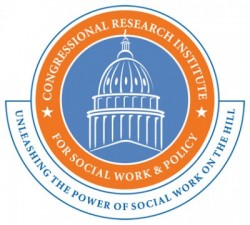Social Workers from across the nation and the globe will gather in Denver this week for the 61st annual meeting of the Council on Social Work Education under the theme: Social Work on the Frontiers of Change acknowledging that the world and the American society are evolving at a rapid pace. Much of the change is due to accelerating advances in technology that impacts the way we learn and communicate. The profession of social work must assess the knowledge and skills being taught in our classrooms to determine if we are optimally grooming social workers to be effective in new environments. These environments include micro and macro settings such as integrated healthcare, telehealth, online learning environments, community and policy practice, and emerging frontiers such as entrepreneurship and politics.

There is a growing cadre of social work educators and scholars who believe more attention must be given to macro social work practice. The Association for Community Organization and Social Administration (ACOSA) launched a Special Commission to Advance Macro Social Work Practice that was informed by Jack Rothman’s survey of social work schools that found macro social work practice was marginalized in many social work programs. The Commission recently tasked CRISP advisory board member Michael Reisch, the Daniel Thursz Distinguished Professor of Social Justice at the University of Maryland School of Social Work, to author a manuscript, Why Macro Practice Matters, that provides an overview of the importance of macro social work practice to the social profession in light of its mandate to pursue social justice. While there is a need for more social workers specializing in macro level occupations, all social workers must participate in macro social work practice. How macro social work content is infused in curricula is the subject of much of the Commission’s work.
The Council on Social Work Education is spearheading the newly-formed Coalition for Policy Education and Practice in Social Work. Supported by the Fund for Social Policy Education and Practice, the coalition will seek to advance policy advocacy and policy practice in social work education and professional development. It will consist of representatives from the Association of Baccalaureate Program Directors (BPD); the Congressional Research Institute on Social Work and Policy (CRISP); the Council on Social Work Education (CSWE); the Grand Challenges Executive Committee of the American Academy of Social Work and Social Welfare (AASWSW); the Fund for Social Policy Education and Practice (FSPEP); Influencing Social Policy (ISP); the National Association of Deans and Directors of Schools of Social Work (NADD); the National Association of Social Workers (NASW); the Network of Social Work Management (NSWM); the Special Commission on Macro Practice of the Association of Community Organization and Social Administration (ACOSA); the Race, Ethnicity and Poverty Network (REAP Centers); and the Society for Social Work and Research (SSWR).
I wrote in a recent post about the imminent launch of a voter empowerment campaign. There is no civic activity more important than exercising one’s right to vote. Voting provides a means for individuals, families, and communities to influence policies that impact their lives. Led by board chair Kristie Holmes, CRISP will participate in a forum at the CSWE APM entitled, Wanted: More Social Workers on the Hill that will focus on the need for adequate curriculum and training to prepare social workers seeking careers as elected officials or employment in legislative settings. Participation in government on all levels will stimulate more interest in civic affairs and promote the understanding that we the people are the government—that government is not some amorphous non-caring entity beyond our reach. And too often we the people forfeit our governmental powers by leaving government solely to politicians. That forum will take place Saturday, October 17th at 12:45 p.m.
Dr. Reisch advises making change may require changes in critical actors through leadership development and political participation. He references a 2015 article by Hunter School of Social Work professor Terry Mizrahi who says macro social workers pose questions such as: Who defines problems in our society? Who decides which problems get attention and of what type? “Macro practice explicitly embodies social work’s commitment to social justice and social change by promoting structural solutions to systemic inequalities and various forms of oppression that go beyond individual adaptation and resilience,” Reisch writes. “All social workers work with people within the context of communities and organizations that are affected by social policies. Understanding communities, organizations, and the policy process, therefore, is an essential component of effective practice with every population and problem with which the profession engages.” Could not have been stated better.
Written By Charles E. Lewis Jr., Ph.D
Social Workers Confront Societal Change at CSWE Annual Program Meeting was originally published @ Congressional Research Institute for Social Work and Policy » Charles Lewis and has been syndicated with permission.
Sources:
Our authors want to hear from you! Click to leave a comment
Related Posts






